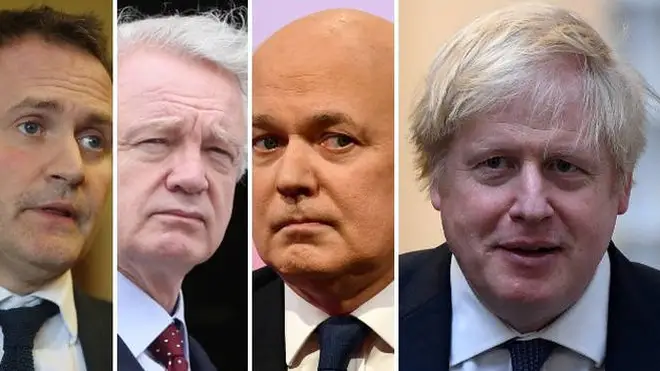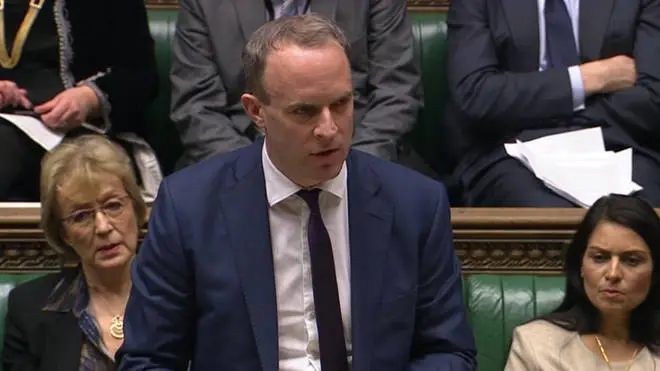
Ali Miraj 12pm - 3pm
28 January 2020, 19:26

Senior Tories and officials in the US have expressed anger and disappointment over the UK government's decision to approve Huawei's involvement in the rollout of 5G.
Former Tory leader Sir Iain Duncan Smith led the criticism as he stood up in Parliament to criticise Prime Minister Boris Johnson's decision to open the door for the Chinese tech giant to have a limited role in the 5G network upgrade.
He chaired Mr Johnson's leadership campaign, but now accuses him of ignoring warnings from security allies such as the US, saying that "even Vietnam does not want Huawei".
Tom Tugendhat, a Conservative MP who is campaigning for re-election as foreign affairs committee chairman, said it would be "near impossible" to bar Huawei's 5G equipment from "sensitive geographic locations", as is claimed by the government.
5. The exclusion from ‘sensitive geographic locations’ seems near impossible to achieve in densely populated areas and in a world of mobile devices. 7/8
— Tom Tugendhat (@TomTugendhat) January 28, 2020
Ex-cabinet minister David Davis accused the Government of preparing to "accept a bribe" from the Chinese state.
However, Culture Secretary Baroness Morgan defended the move, saying the decision "deals with the challenges" the country faces on national security.
"We want world-class connectivity as soon as possible but this must not be at the expense of our national security," she said.
"High risk vendors never have been and never will be in our most sensitive networks.
"The Government has reviewed the supply chain for telecoms networks and concluded today it is necessary to have tight restrictions on the presence of high risk vendors.
"This is a UK-specific solution for UK-specific reasons and the decision deals with the challenges we face right now."
Foreign Secretary Dominic Raab claimed Huawei's involvement in the 5G network will not affect the UK's ability to share "highly sensitive intelligence data" with key allies.

Making a statement to the Commons, Mr Raab said: "I want to be absolutely clear that nothing in this review affects this country's ability to share highly sensitive intelligence data over highly secure networks both within the UK and with our partners including the Five Eyes."
He added: "GCHQ has categorically confirmed that how we construct our 5G and full-fibre public networks has nothing to do with how we share classified data.
"And the UK's technical security experts have agreed that new controls on high-risk vendors are completely consistent with the UK's security needs."
Mr Raab said risks "cannot be eliminated" but a new regulatory system would mitigate them.
Former Defence Secretary Penny Mordaunt said the UK "must never find itself in this position again" while the SNP's John Nicolson said Boris Johnson had opted for the "cheapest, least-secure option".
Meanwhile in the US, President Donald Trump said he was "disappointed" at the decision while Tom Cotton, a senior Republican senator, described the decision as "like allowing the KGB to build the UK’s telephone network" during the cold war.
LBC's Washington Correspondent, Simon Marks, reports that Republicans are "absolutely furious" over the decision and see it as an insult to the US-UK special relationship.
Congresswoman Liz Cheney, daughter of former Vice President Dick Cheney, tweeted: "By allowing Huawei into their 5G network, Boris Johnson has chosen the surveillance state over the special relationship.
She added: "Tragic to see our closest ally, a nation Ronald Reagan once called “incandescent with courage,” turn away from our alliance and the cause of freedom."
There have been suggestions that is may even affect the future ability of the UK to share intelligence with the US, something which the UK government has dismissed.